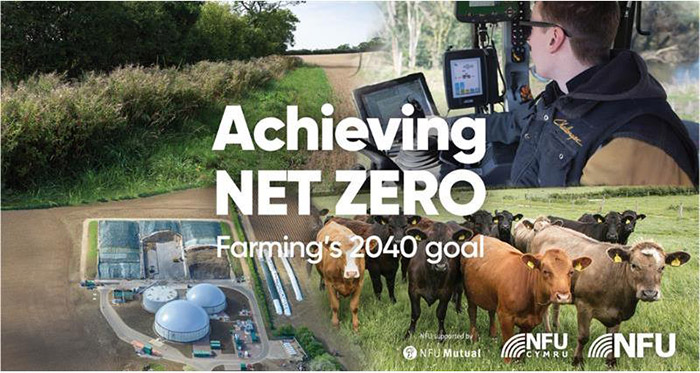How British farming hopes to reach net zero greenhouse gas emissions by 2040, will today be unveiled by the NFU.
The new report, Achieving Net Zero: Farming’s 2040 Goal, sets out three pillars that will help the industry reach its ambitious goal:
- Improving farming’s productive efficiency;
- Improving land management and changing land use to capture more carbon;
- Boosting renewable energy and the wider bio-economy.
The first of these is about reducing our own emissions, using a wide variety of techniques to enhance productivity and deliver the same output or more from every farm, working smarter to use fewer inputs.
The second is about increasing farming’s ability to capture more carbon though bigger hedgerows, more trees and woodland, enhancing soil organic matter and conserving existing carbon stores in grassland and pasture.
The third theme involves displacing GHG emissions from fossil fuels and removing carbon dioxide from the atmosphere through bioenergy and bio-based materials like hemp fibre and sheep’s wool.
NFU president Minette Batters said: “There is no doubt that climate change is one of the biggest challenges of our time and rising rapidly on the political agenda both at home and globally.
“Representing British farming, we recognise our unique position as both a source and a store for greenhouse gas emissions and, importantly, how we can build on our work so far to deliver climate neutral farming in the next 20 years.”
She added: “We aspire to be producing the most climate friendly food in the world. The carbon footprint of British red meat is only 40% of the world average. And we can go further, whether that is through improving our productivity, using our own land to take up and store carbon, planting hedgerows and trees to capture even more, and boosting our renewable energy output. We know that there is no single answer to the climate change challenge facing us all.”




